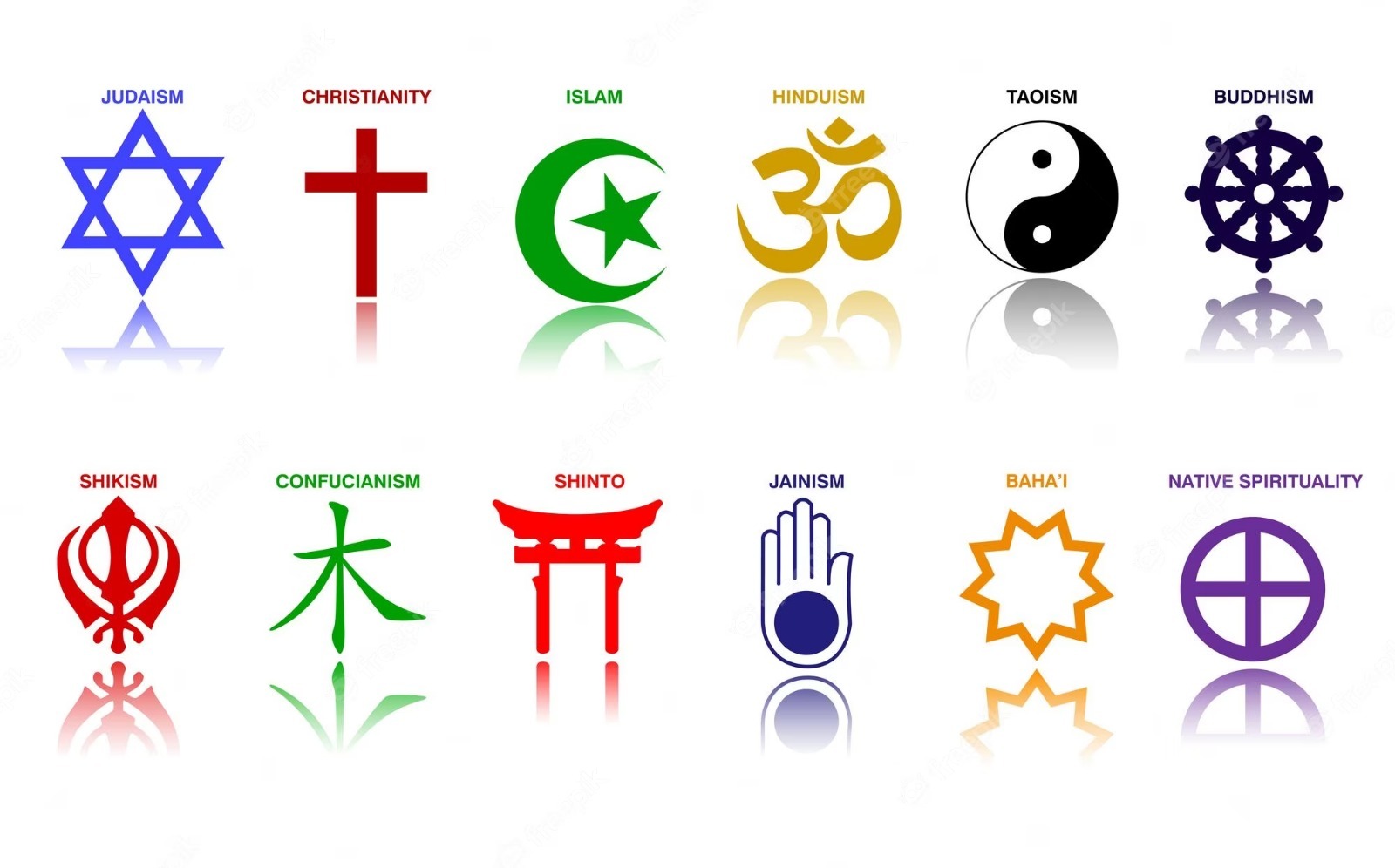
Why is Religious affiliation declining in America
Introduction to the decline of religious affiliation in America
Are you noticing a shift in the winds of faith across America? The landscape of religious affiliation is undergoing a transformation, with traditional ties to organized religion loosening. Let’s dive into the intriguing reasons behind this trend and explore how it’s reshaping our society.
Statistics and data supporting the decline
In recent years, statistics have shown a noticeable decline in religious affiliation across America. Surveys indicate that an increasing number of individuals identify as religiously unaffiliated or non-religious. The data reveals a shift in how people view organized religion and spirituality.
Various studies point to generational differences, with younger demographics showing lower rates of religious adherence compared to older generations. This trend suggests changing attitudes towards traditional beliefs and practices among millennials and Gen Z.
Additionally, research highlights the influence of cultural diversity on religious identification. As society becomes more diverse and inclusive, individuals may explore alternative spiritual paths or choose not to align with any specific faith tradition.
The statistical evidence serves as a reflection of evolving social norms and values shaping the landscape of spirituality in contemporary America. It prompts discussions on the role of religion in modern society and its impact on individual belief systems.
Factors contributing to the decline:
Changes in societal values and beliefs play a significant role in the decline of religious affiliation in America. As society evolves, traditional religious teachings may not always align with modern perspectives on issues such as gender equality, LGBTQ+ rights, and social justice. This disconnect can lead individuals to distance themselves from organized religion.
The rise of technology and access to information has also had a profound impact on declining religious affiliation. With the internet providing easy accessibility to diverse viewpoints and alternative belief systems, individuals are no longer confined to the teachings of a single faith tradition. They can explore different spiritual paths and philosophies that resonate more with their personal beliefs.
Additionally, scandals within religious institutions have eroded trust among followers. Instances of abuse, financial misconduct, or hypocrisy within religious organizations have disillusioned many individuals seeking authenticity and moral integrity in their spiritual leaders. The loss of confidence in institutionalized religion has driven some away from organized faith communities towards more individualized forms of spirituality or secularism.
A. Changes in societal values and beliefs
As society evolves, so do its values and beliefs. The shift towards individualism and personal autonomy has led many to question traditional religious institutions. People are seeking spiritual fulfillment in ways that resonate with their own unique experiences and perspectives.
The increasing acceptance of diversity and inclusivity has also played a role in the decline of religious affiliation. As people embrace different lifestyles, cultures, and identities, they may find it challenging to align with rigid dogmas or doctrines.
Moreover, the rise of secularism and skepticism has fostered a culture that values evidence-based reasoning over blind faith. With access to a wealth of information at our fingertips, individuals are more empowered to explore alternative belief systems or philosophies that suit their rational outlook on life.
These societal changes have contributed to a gradual erosion of traditional religious affiliations in America as people navigate their own paths towards spirituality.
B. The rise of technology and access to information
The rise of technology and access to information has revolutionized the way people interact with the world around them. With just a few clicks, individuals can explore various belief systems, philosophies, and ideologies from the comfort of their own homes. The internet serves as a vast repository of knowledge, allowing individuals to question traditional religious teachings and seek alternative perspectives.
Social media platforms have also played a significant role in shaping people’s beliefs by exposing them to diverse viewpoints and challenging long-held convictions. Virtual communities provide support and connection for those who may not find solace in traditional religious settings.
Moreover, advancements in science have raised questions about the compatibility of religious doctrines with empirical evidence. As more information becomes readily available, individuals are empowered to critically analyze their beliefs and make informed decisions about their spirituality.
C. Scandals within religious institutions
Scandals within religious institutions have shaken the trust of many believers in America. From reports of financial misconduct to instances of abuse, these controversies have led to a decline in religious affiliation across the country. Congregants who once found solace and community within their faith are now questioning the integrity of those leading their religious organizations.
The exposure of such scandals through various media platforms has allowed individuals to become more informed about the inner workings of these institutions. As a result, people are less inclined to blindly follow leaders whose actions contradict the values they preach.
The repercussions of these scandals extend beyond just losing followers; they also tarnish the reputation of religion as a whole. Society is increasingly holding religious institutions accountable for their actions, demanding transparency and accountability from those in positions of power. This shift towards greater scrutiny is reshaping how faith-based organizations operate and interact with their members.
Impact of declining religious affiliation:
The declining religious affiliation in America is reshaping the political landscape, with shifts in voting patterns and policy decisions reflecting this change. Social consequences are evident as communities once united by faith find themselves grappling with new norms and values.
As fewer people identify with organized religion, alternative forms of spirituality like mindfulness practices, yoga, and meditation are on the rise. This trend hints at a changing spiritual landscape where individuals seek personal connections to something greater than themselves.
Religious organizations are adapting by embracing technology to reach a wider audience through online services and social media engagement. Some are focusing on community outreach programs to stay relevant and connected to believers seeking more than just traditional worship.
The impact of declining religious affiliation goes beyond numbers; it’s about redefining how we navigate ethics, morals, and meaning in a rapidly changing world.
A. Political implications
The declining religious affiliation in America is not just a spiritual matter; it also carries significant political implications. As fewer individuals identify with organized religion, the influence of religious groups on politics may diminish. Historically, religious institutions have played a key role in shaping policies and influencing lawmakers based on their beliefs. With this decline, political agendas may shift away from traditional moral values often associated with religion.
This shift could lead to changes in how issues such as abortion, LGBTQ+ rights, and healthcare are approached by policymakers. As the landscape evolves, politicians might need to adapt their strategies to appeal to a more diverse and secular electorate. The separation of church and state becomes even more pronounced as religious affiliations wane amongst citizens.
These political implications highlight the evolving nature of American society and its impact on governance and decision-making processes at all levels.
B. Social consequences
As religious affiliation declines in America, social consequences are becoming more apparent. Communities once bonded by shared faith traditions now find themselves grappling with a sense of disconnection. This shift can lead to feelings of isolation and a loss of belonging for individuals who once found solace in their religious communities.
Moreover, the decline in religious participation has implications for social services provided by faith-based organizations. These groups often play a significant role in providing assistance to those in need, and as membership dwindles, the capacity to support vulnerable populations may be compromised.
Additionally, the moral guidance traditionally offered by religious institutions is increasingly being questioned or sought elsewhere. Without these ethical frameworks, society may face challenges in fostering unity and shared values among its members. The fabric that once held communities together is undergoing transformation as fewer individuals identify with organized religion.
In this changing landscape, it’s essential for society to adapt and find new ways to foster connection and support for all its members regardless of their religious beliefs or affiliations.
Alternative forms of spirituality on the rise
In the midst of declining religious affiliation in America, alternative forms of spirituality are on the rise. People are seeking new ways to connect with something greater than themselves, exploring practices like meditation, mindfulness, and energy healing. These non-traditional spiritual paths offer individuals a sense of peace, purpose, and connection without the constraints of organized religion.
Yoga studios are bustling hubs where people gather not just for physical exercise but also for spiritual growth. Crystal healing workshops and Reiki sessions have gained popularity as individuals seek holistic approaches to well-being. The exploration of ancient wisdom traditions like Shamanism and Taoism is becoming more mainstream as people look beyond traditional religions for spiritual guidance.
The rise of alternative spirituality reflects a shift towards individualized beliefs and practices that resonate with personal experiences rather than rigid dogma. It’s a sign of the evolving spiritual landscape in America where diversity and inclusivity thrive.
Ways religious organizations are adapting to the decline:
Religious organizations are evolving to meet the changing landscape of beliefs and values in society. One way they are adapting is by embracing technology to reach a wider audience. From live-streaming services to interactive virtual communities, churches are going digital.
Another adaptation is focusing on community engagement and social justice initiatives. By addressing real-world issues like poverty, inequality, and environmental concerns, religious institutions are staying relevant and connected to their congregations.
Moreover, some organizations are reimagining traditional rituals and practices to appeal to a modern audience. By incorporating elements of mindfulness, wellness programs, or even hosting events like yoga classes or meditation sessions, they attract individuals seeking spiritual fulfillment in new ways.
These adaptations demonstrate that religious organizations are not only aware of the decline in affiliation but also actively working towards building inclusive and engaging communities for all who seek meaning and connection.
Conclusion
As religious affiliation continues to decline in America, it is evident that society is undergoing a significant shift in values and beliefs. With changes in societal norms, advancements in technology providing access to information like never before, and scandals within religious institutions shaking public trust, it’s no surprise that more people are turning away from traditional forms of organized religion.
This trend has far-reaching implications for politics and social dynamics. As fewer individuals identify with established religions, the landscape of political discourse may evolve, and new social structures may emerge to fill the void left by declining religious communities.
However, this shift does not signify the end of spirituality altogether. Alternative forms of spiritual expression are on the rise as individuals seek meaningful connections beyond traditional religious frameworks. From mindfulness practices to holistic healing modalities, people are exploring diverse avenues to nurture their spiritual selves.
Religious organizations are also adapting to these changes by embracing digital platforms for outreach and community building. Many institutions are reevaluating their messaging and practices to remain relevant in an increasingly secular world while still upholding core values.
While the decline of religious affiliation presents challenges for established institutions, it also opens doors for new expressions of spirituality and community. As society continues to evolve, so too will our understanding of faith and belonging – shaping a more inclusive and diverse spiritual landscape for generations to come.

